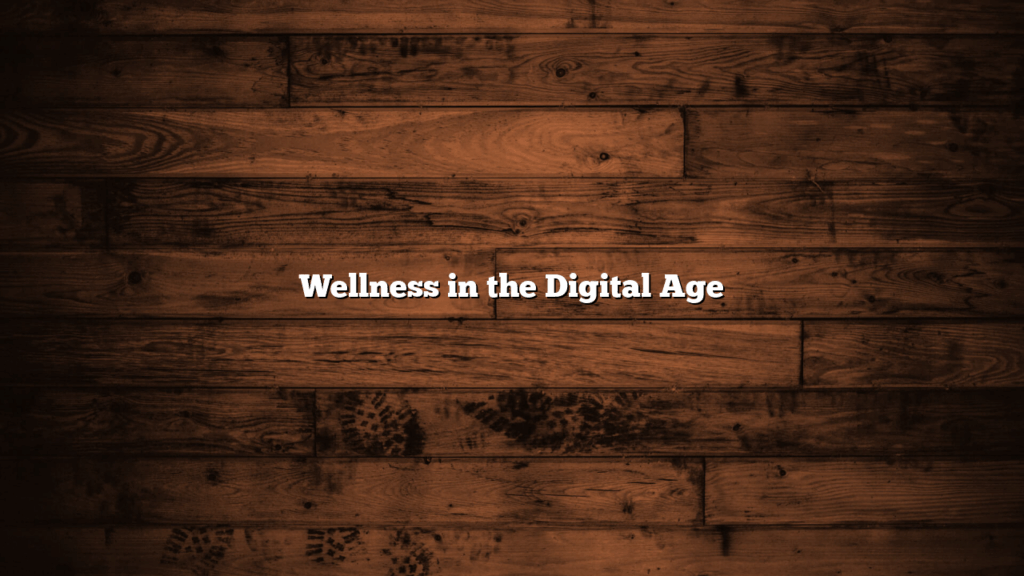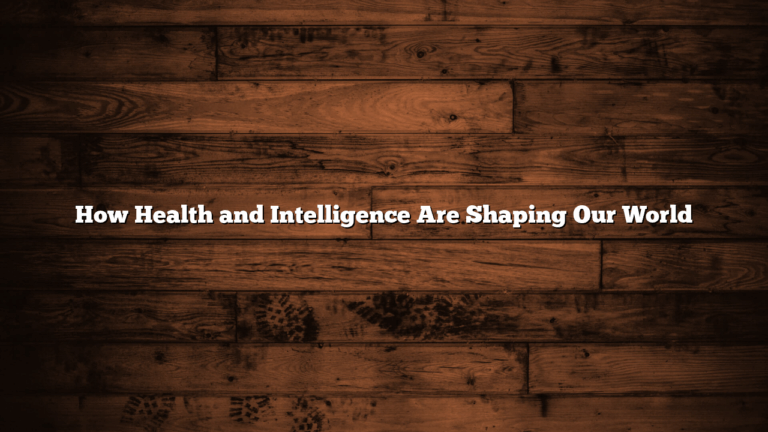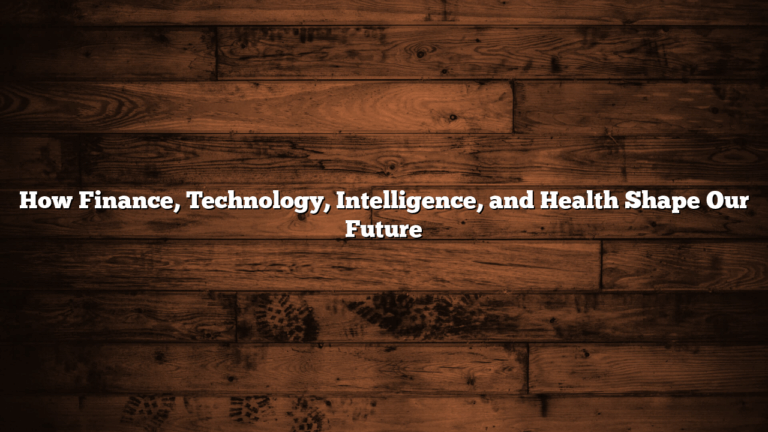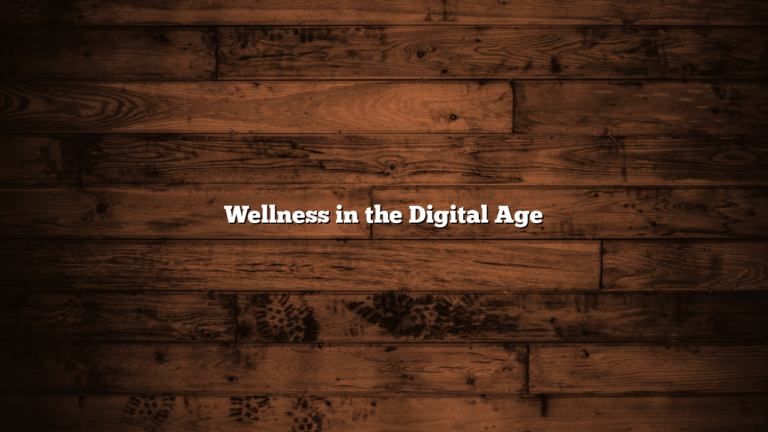
Wellness in the Digital Age
In today’s world, personal wellness has become a major concern for individuals and governments alike. With the rise of chronic diseases and lifestyle-related conditions, more people are looking for ways to improve their mental and physical health.
Consistent physical activity, healthy eating, and enough rest remain the cornerstones of a healthy lifestyle. Additionally, the awareness surrounding mental health has grown, encouraging mental health support and self-care routines.
Technology also plays a big role in health. Smartwatches and wellness apps help users monitor their steps and stay on track with their goals. Telemedicine has also made it easier to connect with doctors virtually, especially in rural or underserved areas.
—
The Role of Technology
Technology has transformed nearly every aspect of our daily lives. From smartphones to AI-powered solutions, we are more connected and efficient than ever before.
In the workplace, artificial intelligence improves productivity and reduces manual labor. Digital cloud services allows employees to access files anywhere, boosting collaboration.
In personal spaces, smart homes provide efficiency, allowing residents to control lighting, temperature, and even security systems with voice commands. Meanwhile, in the education sector, online learning platforms have made knowledge more accessible.
However, the growing influence of tech also comes with challenges. Data breaches are more common, and many people worry about how their information is being used.
—
Money Management in a Digital Age
Managing money is a critical skill in the modern world. With inflation, people are seeking smarter ways to save and invest.
Thanks to mobile finance tools, tracking your income and expenses is easier than ever. Apps like Mint offer users the ability to budget intelligently.
Cryptocurrency and blockchain technology have also gained traction. Although still volatile, digital currencies like Bitcoin and Ethereum offer alternative investment opportunities that are becoming more mainstream.
In addition, online banking has revolutionized financial services. People can now transfer money, pay bills, and apply for loans without visiting a physical branch. This convenience has helped increase financial inclusion in developing nations.
—
Traveling Post-Pandemic
After a long period of lockdowns and restrictions, travel is finally bouncing back. People are eager to visit new places and experience different cultures.
Travel in 2025 is more tech-enabled than ever. From booking dagotogel to checking into hotels, everything can be done with a smartphone. Apps like Booking.com help travelers find the best deals and accommodations tailored to their needs.
Health safety has also become a bigger part of travel planning. Many countries now require proof of vaccination or negative tests, and travelers are more conscious of hygiene and sanitation.
Eco-tourism is also on the rise. People want to travel more responsibly, reducing their carbon footprint and supporting local communities. From hiking in nature reserves to volunteering abroad, sustainable travel is gaining momentum.
—
Conclusion
To conclude, these four areas are deeply interconnected. Each plays a vital role in shaping how we live and thrive in today’s world.
As technology continues to evolve, so will our approach to wellness, money management, and global exploration. By staying informed and adapting to these changes, we can lead more balanced, efficient, and fulfilling lives.



